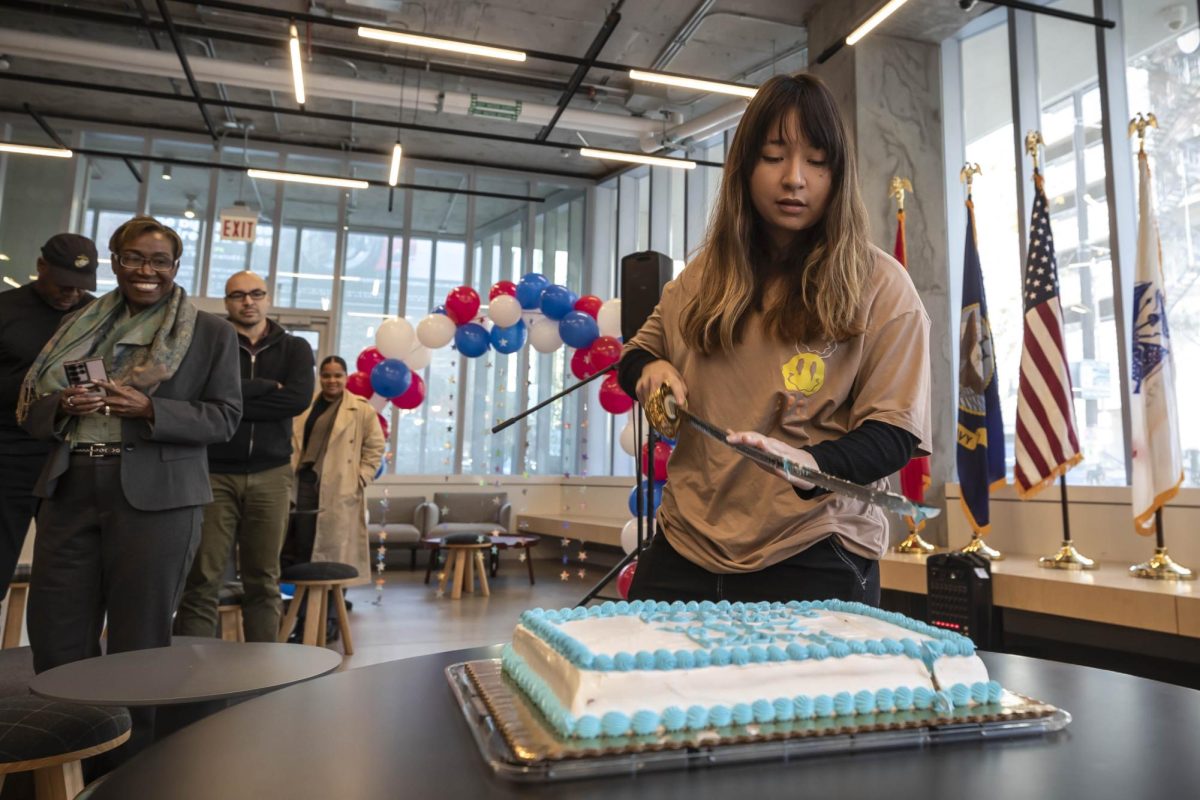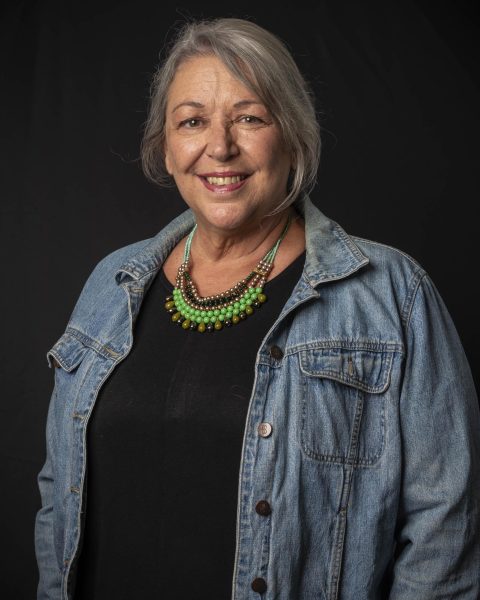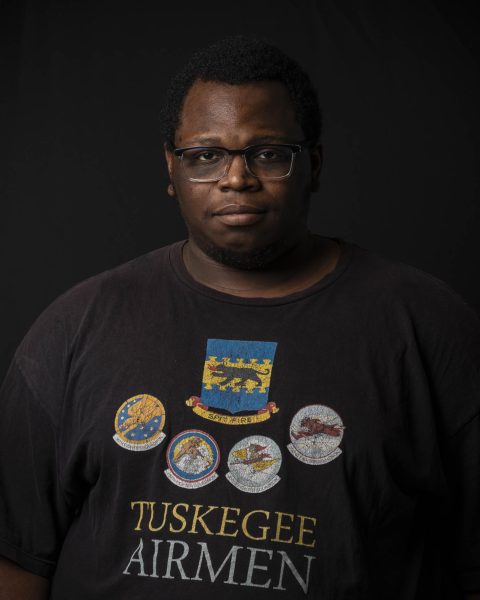For the first time, Columbia’s student veterans can find each other outside of chance encounters in class.
This should make it easier to reorganize the student veteran organization, said Kari Sommers, associate dean of Student Life.
Some of those veterans met on Thursday, Nov. 9 at a Veterans Day Celebration held at the Student Center.
Columbia has about 160 veteran students, Sommers told the Chronicle.
“This year we worked with IT, Columbia’s Internet and Technology department to get an API, which is data on the Engage platform,” Sommer said. “Within the Engage platform student veterans and their dependents are identified as a group and have the ability to chat, create channels, we’ll start working on a website and additionally, student veterans can join the Columbia student veterans organization which will be restarting very soon. It’s really exciting!”
Only a handful of veterans attended the celebration, but Sommers said she is hopeful that more students who served in the military will find each other.
“We also want to connect current student veterans and alumni student veterans, which is another piece that’s really exciting to us,” said Sommers. “Veterans are writers, artists, musicians, filmmakers, and work in audio. Veterans are everywhere.”
Marine veteran Tom Nawrocki, an associate professor in the English and Creative Writing Department who served in Vietnam, is the faculty advisor to the group.
“From what I understand, the student veteran organization that was active back in the day became diminished,” said junior ASL Interpretation major, Ben Papale. “I do not currently have the ability to access a lot of other veterans.”
Papale served in the Marine Corps and then the U.S. Army.
He picked ASL because he had the opportunity to spend Christmas holiday with a deaf family and realized that despite cochlear implants it was difficult to understand multiple speakers, Papale said.
As he transitioned out of the military, attending Columbia was a natural progression that led to a desire to continue to serve others.
“I joined the military before most students here were even born,” Papale said. “I’ve gained a lot of life experience and a lot of knowledge they have not had the opportunity to learn yet. With multiple deployments overseas and being able to integrate with individuals in those different nations, it opened my eyes to appreciating other points of view. It shifted my worldview quite a bit.”
Learning from younger people is also something Papale has experienced over the past year and appreciates both sides, he said.
“I think the biggest thing [we contribute] is leadership,” Papale said. “If I can pass my knowledge on to someone who is 20 [years old] who is going into business, I think that’s going to make them better at school and at life and make our civilization better at the same time.”
Transitioning from the military to college, in particular an arts college, can be difficult for some veterans.
“We’re regular people, but at the same time being in the military, no matter what your job was, is such a unique experience,” said Luis Rosa, a first year student and audio arts major. “It’s a whole different culture from society in general.”
Relating to people who have not done what veterans have done is difficult, he said, noting the importance for non-veterans to realize that veterans come out finding it difficult to connect with civilians.
“It’s hard,” said Rosa. “It’s very hard. I was in the infantry for six years, which is its own subculture in and of itself outside of the regular military. You go from being around a bunch of dudes you would die for everyday to just being on your own.”
Being an adult, losing touch and figuring things out alone, it’s hard, he said. Still, transitioning is lifelong, but Rosa never thinks military veterans fully transition out because the military becomes a part of a veteran forever.










